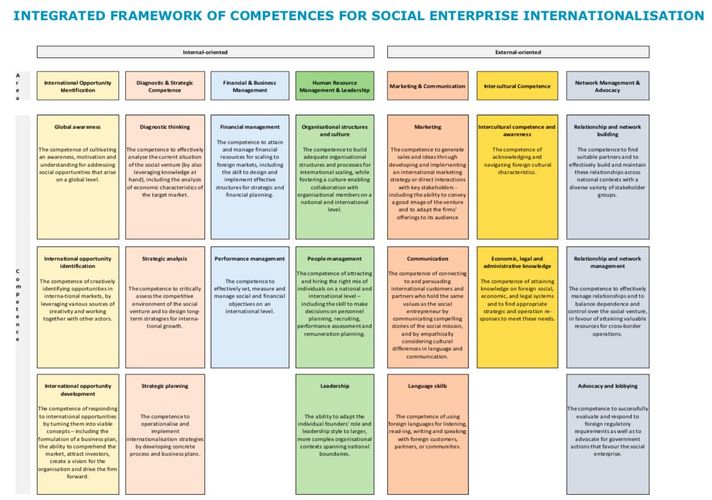To better support the internationalisation endeavours of social enterprises, the new report by Vienna University of Economics and Business, as part of the Erasmus+ project “Enabling Social Entrepreneurs to Scale their Impact Internationally” (ESESII), explores the concrete challenges, competences, and potential competence gaps that hinder social entrepreneurs from scaling their impact across the borders of their home markets.
Based on the research and analysis, the report provides an “Integrated Framework of Competences for Social Enterprise Internationalisation” for social entrepreneurs, vocational education and training providers (VET) and the social entrepreneurship ecosystem. In the years to come, the framework will serve as a basis for the design of VET curricula, serving social entrepreneurs across Europe, covering 19 competences along the lines of seven areas:
- International opportunity identification;
- Diagnostic and strategic competence;
- Financial and business management;
- Human resource management and leadership;
- Marketing and communication;
- Intercultural competence;
- Network management and advocacy.
